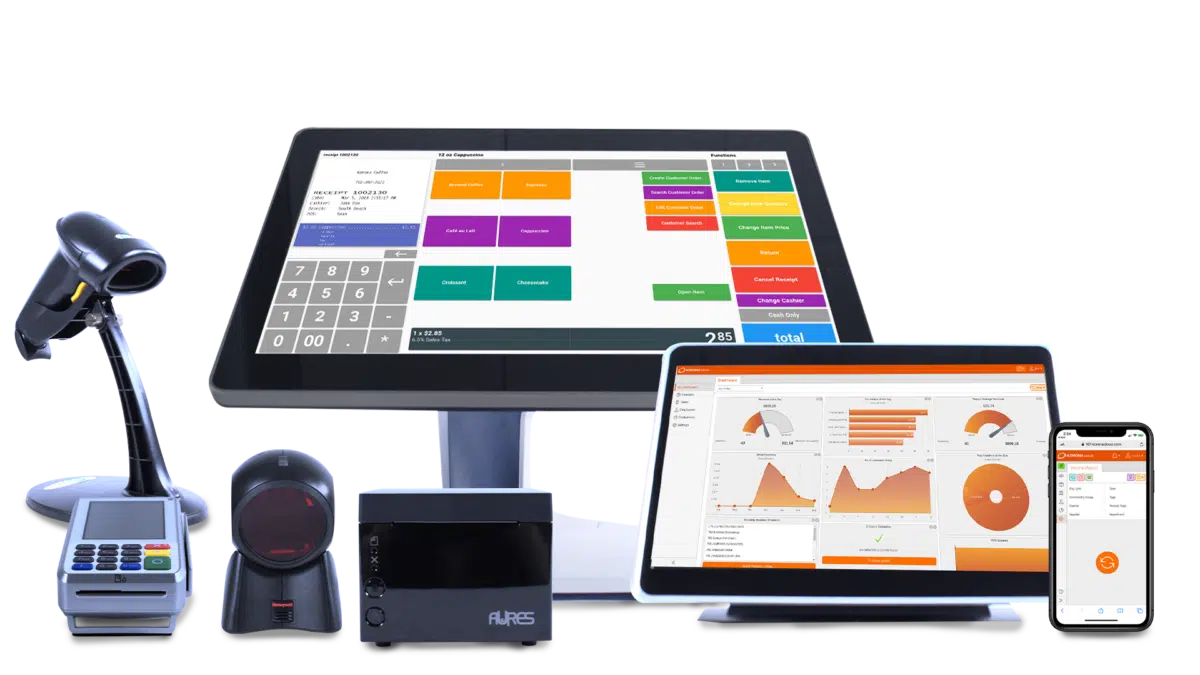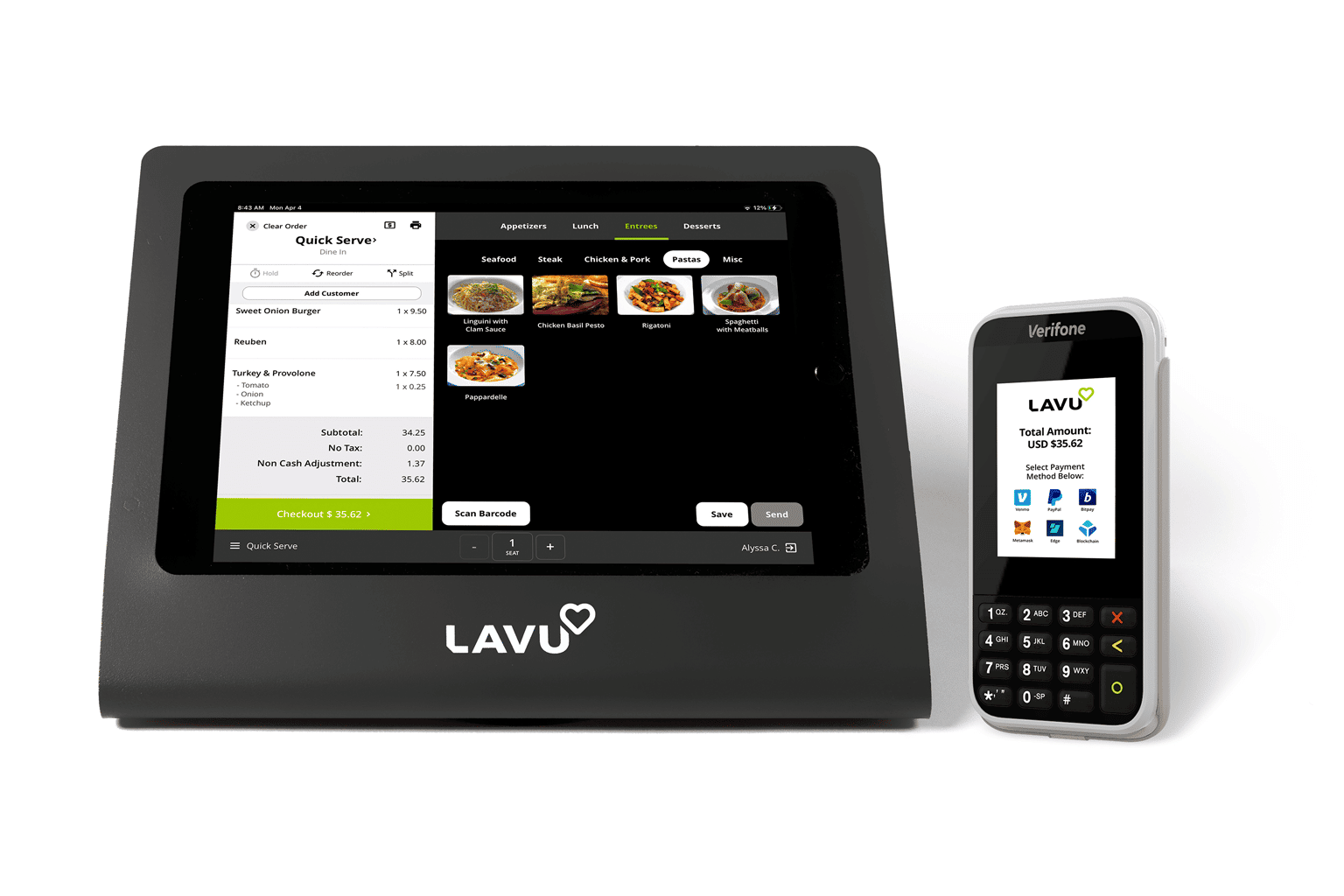Frequently asked questions about Restaurant POS Software systems
Understanding the Importance of POS Software Application in Modern Retail Procedures
In today's retail landscape, the role of POS software application has become increasingly substantial. These systems have actually changed from basic cash money signs up to diverse devices that boost numerous elements of operations. They not just simplify purchases yet also give understandings that can shape company approaches. Comprehending just how these systems impact client experience and inventory administration is vital for any kind of store looking for to continue to be competitive. The effects of these innovations necessitate more exploration.
The Evolution of POS Software Program: From Transaction Processing to Comprehensive Solutions
As retail environments evolved, so also did the performance of Point of Sale (POS) software program, which changed from fundamental transaction processing systems to advanced, all-encompassing options. POS systems mostly dealt with sales transactions, handling money registers and printing invoices. With advancements in innovation, these systems started integrating stock monitoring, customer partnership management, and sales analytics. Stores identified the requirement for smooth operations and real-time information, motivating the development of cloud-based POS solutions that permitted remote accessibility and enhanced scalability.Additionally, the rise of mobile commerce necessitated POS systems to adjust, making it possible for transactions using tablet computers and mobile phones. This change not only streamlined procedures however additionally enhanced reporting capacities, allowing retailers to make educated choices based on thorough data understandings. Subsequently, contemporary POS software program has come to be integral to retail strategy, acting as a multifunctional device that supports numerous operational facets beyond simple purchase handling.
Enhancing Consumer Experience Through Advanced POS Includes
While numerous merchants concentrate on functional effectiveness, progressed POS attributes significantly focus on enhancing the consumer experience. Modern POS systems now supply functionalities such as mobile settlement choices, individualized promotions, and customer loyalty programs, which cultivate a more interesting buying setting. By streamlining the check out procedure, these systems minimize wait times, permitting consumers to total transactions promptly and efficiently.Additionally, integrated client relationship monitoring (CRM) attributes make it possible for stores to track acquiring choices and habits, assisting in customized marketing efforts. This personalization not only develops client loyalty yet likewise improves total satisfaction.Moreover, progressed analytics provided by POS systems can assist sellers comprehend consumer patterns and preferences, enabling them to make educated choices concerning item offerings and store layouts. Eventually, the concentrate on consumer experience via innovative POS includes not only meets modern customer assumptions yet additionally drives repeat business and enhances income for sellers.
Enhancing Inventory Monitoring With Integrated POS Systems
Integrated POS systems play a crucial duty in enhancing supply monitoring by automating processes that commonly needed considerable hand-operated effort (Restaurant POS Software). These systems make it possible for merchants to track stock degrees in actual time, removing disparities that frequently arise from manual stock counts. With functions such as barcode scanning and automated supply replenishment notifies, services can maintain excellent supply degrees without overstocking or stockouts.Furthermore, incorporated POS systems promote accurate forecasting by examining historical sales information, allowing retailers to make educated acquiring choices. This predictive capacity helps services adjust to changing consumer demands and seasonal trends extra effectively.Additionally, the centralization of stock data throughout numerous sales channels improves exposure, making it possible for sellers to manage their supply extra efficiently. Ultimately, the integration of POS systems into inventory monitoring simplifies procedures, decreases human mistake, and adds to increased earnings
Real-Time Sales Tracking and Coverage for Informed Decision-Making
Precise supply management lays the groundwork for effective sales tracking and coverage. Real-time sales tracking makes it possible for retailers to check sales performance as it happens, giving instant understandings right into consumer buying patterns and patterns. This capability allows organizations to react promptly to variations sought after, maximizing supply degrees and lessening overstock or stockouts.Moreover, integrated POS systems promote the generation of in-depth records, highlighting crucial metrics such as sales by category, period, and private items. Such coverage capabilities equip stores to make data-driven choices, determining effective strategies and areas needing improvement.

The Function of POS Software in Client Relationship Monitoring
POS software plays an important role in improving customer partnership administration by enabling sellers to execute individualized advertising and marketing approaches. By assessing client information, companies can tailor promos and interactions to fulfill individual choices. In addition, these systems facilitate the development of enhanced loyalty programs that encourage repeat business and enhance customer engagement.
Personalized Advertising And Marketing Strategies
As retailers progressively seek to enhance client loyalty and involvement, individualized advertising and marketing techniques have arised as a vital part of reliable customer connection management. POS software program plays an important role in this process by accumulating and analyzing consumer information, making it possible for sellers to tailor advertising and marketing efforts to individual choices and buying habits. By leveraging understandings from acquisition backgrounds, sellers can create targeted promos and personalized communications that reverberate with clients, promoting a deeper connection. In addition, the assimilation of POS software application with consumer connection monitoring systems enables seamless tracking of consumer interactions, making sure that advertising methods remain prompt and relevant. This data-driven approach not only boosts consumer complete satisfaction but likewise drives sales and motivates repeat service, strengthening the store's market setting.
Enhanced Loyalty Programs
Sellers are progressively recognizing the value of loyalty programs in fostering long-term client relationships and boosting overall interaction. POS software application plays a necessary role in the advancement and administration of these programs, allowing merchants to track customer actions, choices, and purchases effectively. By leveraging data analytics, organizations can develop individualized benefits and motivations that reverberate with specific customers, consequently enhancing involvement in loyalty programs. In addition, POS systems make it possible for smooth integration with mobile applications and digital platforms, facilitating very easy access to promos and incentives. This not only improves customer satisfaction yet likewise drives repeat organization. Eventually, POS software application empowers stores to cultivate much deeper connections with their clientele, changing periodic buyers right into devoted clients with targeted and significant engagement techniques.
Incorporating POS Solutions With Ecommerce Operating Systems for Omnichannel Success
To achieve true omnichannel success, smooth integration in between point-of-sale (POS) systems and ecommerce platforms is crucial. This assimilation allows retailers to merge their inventory management, guaranteeing that product availability is precisely shown across both online and physical stores. Clients gain from a natural shopping experience, where they can quickly switch over in between networks without coming across discrepancies.Furthermore, incorporated systems facilitate real-time data sharing, allowing services to examine consumer behavior and choices better. This data-driven strategy permits sellers to tailor marketing approaches and optimize stock degrees, inevitably boosting consumer satisfaction and driving sales.Additionally, the ability to process purchases throughout platforms streamlines operations, decreasing the threat of errors and enhancing total effectiveness. As merchants increasingly take on omnichannel strategies, the integration of POS systems with ecommerce systems continues to be an essential aspect in accomplishing sustainable growth and preserving affordable benefit in the dynamic retail landscape.

Future Trends in POS Innovation and Their Effect On Retail Operations
As retail procedures progress, future patterns in POS technology are readied to improve the landscape substantially. The rise of cloud-based remedies, innovations in mobile POS systems, and the advantages of AI assimilation are amongst the crucial growths prepared for to enhance performance and customer experience. These innovations guarantee to simplify processes and promote a much more vibrant retail environment.
Cloud-Based Solutions Surge
With the enhancing dependence on innovation, cloud-based POS services are transforming retail procedures by supplying boosted adaptability and scalability. These systems enable sellers to access real-time information from anywhere, promoting better decision-making and client service. By leveraging cloud framework, companies can minimize upfront costs connected with software and hardware setups while ensuring seamless updates and upkeep. In addition, cloud-based options support multi-location monitoring, permitting merchants to synchronize inventory and sales throughout different outlets easily. This flexibility is necessary in today's hectic market, where consumer preferences shift swiftly. As more retailers embrace these solutions, they can anticipate better functional effectiveness and a more receptive approach to market needs, inevitably improving customer contentment and loyalty.
Mobile POS Innovations
The advancement of retail innovation proceeds to shape operations, specifically with the increase of mobile POS advancements. These systems allow retailers to process transactions anywhere within the store, enhancing consumer interaction and enhancing checkout procedures. Mobile POS solutions improve inventory monitoring by permitting instant access to stock levels, helping staff aid clients much more effectively. Additionally, they assist in individualized shopping experiences via incorporated client data and loyalty programs. As mobile tools become significantly sophisticated, merchants are embracing attributes such as digital invoices and contactless repayments, furthermore optimizing the acquiring trip. The shift towards mobile POS not just boosts operational efficiency but also aligns with the expanding consumer choice for ease, guaranteeing that sellers continue to be affordable in a quickly evolving market.
AI Combination Benefits
AI integration stands for a transformative leap in read more POS modern technology, supplying retailers a myriad of advantages that boost operational effectiveness and client experience. By leveraging equipment discovering formulas, stores can analyze acquiring patterns and enhance stock administration, reducing waste and stockouts. Additionally, AI-powered analytics provide personalized advertising and marketing suggestions, enabling targeted promotions that boost consumer involvement and loyalty (Restaurant POS Software). Chatbots and virtual aides simplify client solution, allowing for quicker resolution of queries and improving the general purchasing experience. Predictive analytics can additionally anticipate need patterns, enabling smarter staffing and resource allocation. Ultimately, the assimilation of AI read more in POS systems equips merchants to make data-driven choices, promoting an affordable side in an ever-evolving retail landscape
Regularly Asked Concerns
What Are the Expenses Related To Implementing POS Software?
The costs connected with implementing POS software program can consist of software licensing charges, equipment costs, setup charges, training prices, and continuous upkeep. Each factor adds to the overall financial investment necessary for a successful execution.
Exactly How Can Tiny Retailers Advantage From POS Solutions?

What Hardware Is Needed for a POS System?
A common POS system requires important hardware parts, consisting of a touchscreen display, cash drawer, barcode scanner, receipt printer, and settlement terminal. These elements interact to assist in effective deal processing and supply administration for merchants.
Can POS Software Be Personalized for Particular Retail Requirements?
POS software application can indeed be customized to satisfy specific retail needs. This flexibility permits businesses to tailor attributes, interfaces, and reporting devices, enhancing operational performance and offering an extra customized experience for both staff and consumers.
Exactly How Safe And Secure Is Consumer Data in POS Equipments?
The security of client information in POS systems differs widely. Several systems carry out security, secure gain access to controls, and normal updates, but vulnerabilities can still exist, demanding ongoing watchfulness and proactive actions from merchants to protect sensitive details. By simplifying the check out website process, these systems minimize wait times, permitting clients to total purchases swiftly and efficiently.Additionally, incorporated client partnership management (CRM) attributes enable merchants to track acquiring choices and habits, helping with customized marketing initiatives. As stores significantly seek to improve consumer commitment and interaction, personalized advertising methods have actually emerged as an essential part of efficient customer partnership administration. In addition, the combination of POS software program with client relationship administration systems permits for seamless tracking of client communications, making certain that marketing strategies continue to be prompt and relevant. Customers profit from a cohesive purchasing experience, where they can quickly switch over in between networks without encountering discrepancies.Furthermore, integrated systems facilitate real-time information sharing, enabling businesses to analyze client habits and choices much more efficiently. Little sellers can benefit from POS systems via improved deal efficiency, streamlined inventory management, and enhanced customer understandings.